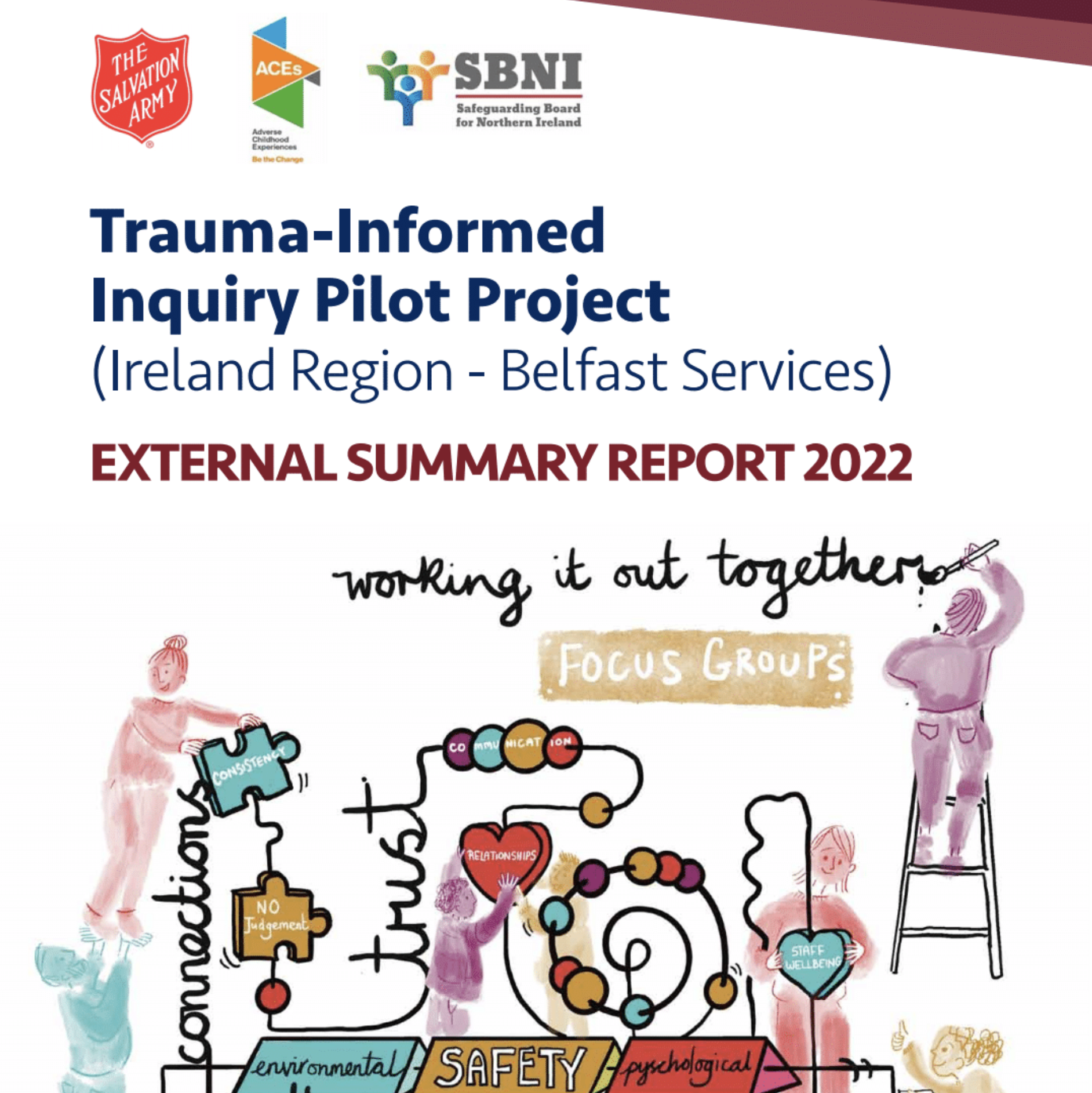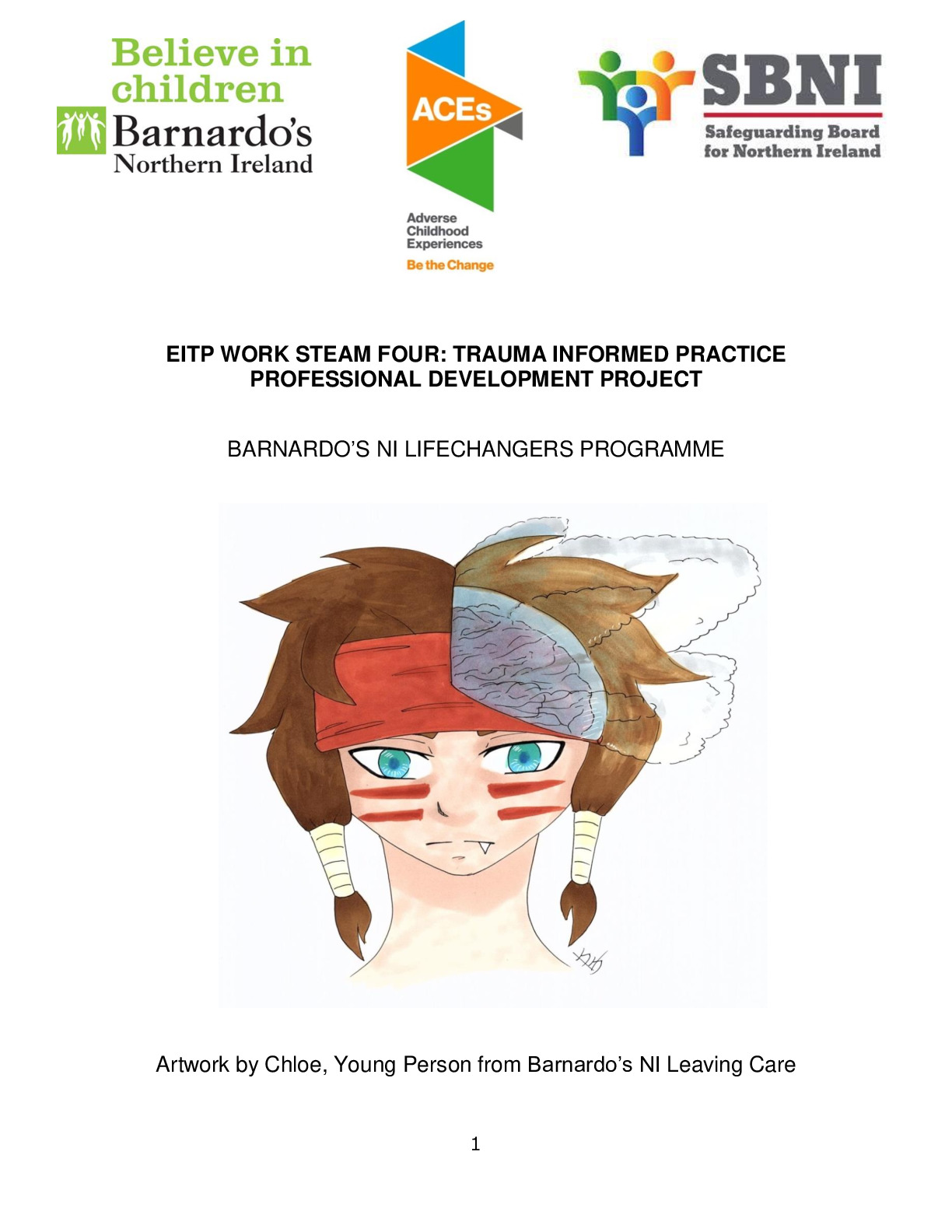What does 'Trauma Informed' mean?
A trauma informed approach is a way of increasing the understanding of trauma and its impact through supporting development of skills and knowledge throughout the workforce. It also recognises the correlation between trauma and poorer outcomes which may be caused by the direct impact of the trauma, the impact of the trauma on a person’s coping response or the impact of the trauma on a person’s relationships with others.
“A program, organisation, or system that is trauma-informed realises the widespread impact of trauma and understands potential paths for recovery; recognises the signs and symptoms of trauma in clients, families, staff, and others involved with the system; and responds by fully integrating knowledge about trauma into procedures and practices, and seeks to actively resist re-traumatisation.” (SAMHSA, 2023)
….the broader term of ‘trauma informed’ refers to a whole-systems organisational change framework that aims to develop coherent cultures, policies and practices across systems of service delivery to enhance service user engagement and provide more effective care .
Becoming a trauma-informed organisation is therefore considered not a one-off activity or a “standalone intervention that can be delivered in silo” . It is instead an organisational transformation process which requires systemic culture change and ongoing work at all levels of the organisational hierarchy, rather than simply training or screening .
It is recognised that implementing a trauma informed approach is complex, as organisations and systems differ widely. What is recommended is “a comprehensive, whole-system approach to the implementation process that is theoretically grounded, developmentally informed and is flexible enough to be adapted to each organization’s unique context.” In summary a trauma informed approach has been described as “a framework to guide complex systems” (QUB.2024)
Defining what we mean by Trauma
“Trauma is one possible response to adversity. A traumatic event can be an experience, series of experiences, or circumstances but resilience is possible with timely support.” (Frameworks UK)
Trauma refers to experiences that cause intense physical and psychological stress reactions. This may be from a single event, multiple events or a set of circumstances experienced by an individual as physically and emotionally harmful or threatening and that has lasting adverse affects on the individuals physical, social and emotional, or spiritual wellbeing. (Adapted from SAMHSA 2014)
Defining Trauma-Informed Practice
Benefits of Trauma Informed Practice
The benefits of developing a trauma informed system impact upon staff and the people who use services:
Support
A Trauma Informed approach can support in the identification of need and lead to improved outcomes for those affected by trauma (staff and service users/clients). The prevalence of adversity & trauma means that we need not only to focus
on the people who seek support but equally on the people and systems who
provide that support.Knowledge
Knowledge regarding human development informs our practice and supports our understanding of the physiological responses to stress and the importance of our relationships. Supporting best practice means we understand how to recognise and supportively respond to signs of overwhelming (toxic) stress in ourselves and others.
Understanding
Understanding how to apply the principles of a trauma informed approach starts with reflection, embedding knowledge and understanding to our response. ‘What has happened to this person?’ Are there any unmet emotional needs? Using a trauma ‘lens’ supports us to reflect upon what the person, family or community may have experienced.
Relationships
Trauma can impact on our ability to feel safe and develop trusting relationships with others. Developing safe relationships and supporting regulation is an important component for both individuals and organisations. Trauma theory suggests that many of the behavioral symptoms that we see in individuals are a direct result of coping with adverse experiences. Trauma informed approaches are in essence relational based practices, so how we engage with our service uses, workforce, and colleagues is fundamental. Good quality relationships have a positive impact on health and wellbeing and poor relationships have a negative impact. Investing in relationships in our workplaces is integral.
Early intervention
Our early experiences matter. Early intervention is integral to offer support and help at the earliest possible opportunity - bridging the gap through understanding of current presentations in the context of life experiences.
Long term impact
There is evidence of positive outcomes for children and young people, adults, communities as well as wider implications for staff and service user wellbeing. (Please refer to latest research from QUB which provided a comprehensive analysis of the benefits and enablers to a trauma informed approach
Trauma Informed Practice Training Resources
The Safeguarding Board for Northern Ireland has been working with partners to share best practice of the trauma sensitive services that continue to support our services users and to implement a consistent suite of trauma informed practice training resources across the Northern Ireland workforce of health, social care, justice, education, community and voluntary sector and many more. These training resources raise awareness of the potential impact of childhood adversity, physically, behaviourally and emotionally across the lifespan. They provide staff with some key resilience building skills to support those children, young people, adults and families who have been affected by adversity. Training will also focus on the safety and wellbeing of staff across our workforce and introduce key aspects regarding what a trauma informed system may look like. Please refer to the Trauma Informed Toolkit link.
Trauma Informed Inquiry Pilot Project - Salvation Army
During 2019/20 The Salvation Army participated in the Safeguarding Board Northern Ireland’s (SBNI) Trauma-Informed Practice Project (TIP) ‘Be the Change’ Leadership Programme, which was to support leaders to explore organisational change and consider future strategic direction. This report reflects that pilot and the organisation’s journey exploring strengths and gaps, using the SBNI TIP’s ‘transformation model’ which incorporates the key principles of trauma informed practice. (SAMHSA 2014).

Trauma Informed Inquiry Pilot Project
Download
Barnardo’s NI Life Changers Programme - Participation of Children and Young People
Through the EITP Trauma Informed Practice Project, Barnardo's NI have been working with children and young people who are currently receiving support through the Barnardo’s services and programmes. Young people in care, children with a disability, refugee families, young carers and many more worked with the SBNI and Barnardo’s NI from January to March 2019 through a six week life changers programme to explore what their needs are, who supports them when they are experiencing distress and how they have been made to feel. A short video production brought together to showcase how staff are working through a trauma informed approach to support the young people. The learning from this work continues to inform the development of the SBNI EITP Trauma Informed Practice Project Training and Resources.
Download the Life Changers NI Report from the programme

Barnardo's NI Life Changers Programme Report March 2019
Download